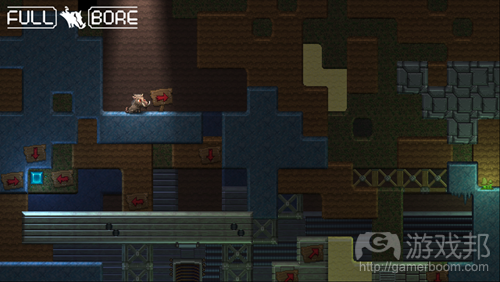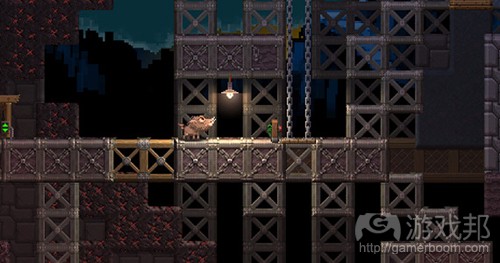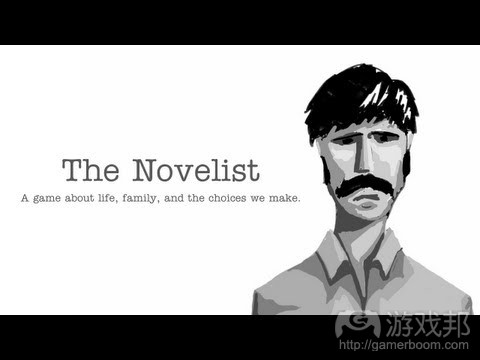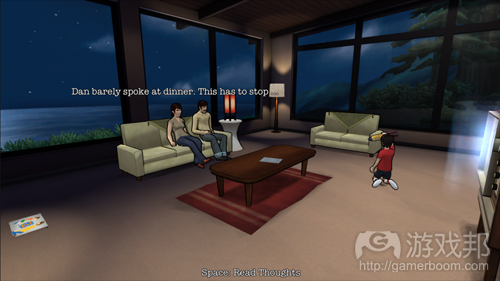开发者离开AAA领域转向独立开发的原因(下)
作者:Giancarlo Valdes
Casey Carlin准备离开了。离开前的最后两年,他为一家日本开发公司做UI,但他知道如果留下来,他将一直做UI。是时候改变了。所以,他收拾好行李搬回家住,但他并不清楚日后要做什么。(请点击此处阅读本文上篇)
Carlin花了约一个月半思考出这个问题的答案。在广受好评的《时空幻境》和《超级食肉男孩》的启发下,他发现他再也抵抗不了“独立开发的塞壬之歌”了。他召集几位好友,立即投身于第一款游戏的制作中。
他的故事并不独特。越来越多人离开全职工作,成为独立开发者。比如,在旧金山的第一次Indie Press Day活动上,有16名开发者展示了自己的游戏的初期版本。在第一轮采访中,我与曾经供职于BioWare和Maxis的人才们谈话。这一次,我们将首先追踪太平洋另一端的Carlin的职业生涯,然后返回来看看Kent Hudson从制作一流射击游戏转变到设计关于事业与家庭矛盾的游戏的过程。
Casey Carlin, Whole Hog Games
为什么离开
Carlin的职业生涯走了一条不寻常的路线:日本。一开始,当他还在斯托克顿市大学上学时,他尝试通过特殊合作计划申请到日本当实习生。他学校再次拒绝了他的申请。所以Carlin决定给尽量多的日本开发公司发邮件,表达他的“渴望”因为他“确实想在日本当实习生”。
邮件得到回复了。Arc System Works(游戏邦注:以制作硬核2D格斗游戏闻名,代表作有《罪恶装备》和《苍翼默示录》等)是少数回应的公司之一。
“那时才开始有一点‘全球化’的苗头,我想应该这么说吧。他们把我当成试水的机会。”Carlin解释道。
他在Arc System Works做了6个月的实习生,并且在2009年毕业时顺利从实习生变为全职员工。在那时,他参与制作《Hard Corps: Uprising》等游戏的UI,有时候也帮助翻译。
Carlin笑道:“我的朋友和家人都非常生气,一直叫我回家。单这个因素我想我可以忽略,但当你在大公司工作时,非常容易发生的一种情况就是,你成为困死在特定领域的‘那个家伙’。我的态度基本上是积极的——我读到贴在墙上的通知时,我意识到只要我还在Arc System Works公司做事,我就将一辈子做UI。那未必是件坏事。我确实很喜欢做UI,但我不想总是局限于这个领域。”
两年后,当他意识到他将“永远无法脱离那个领域”并且他永远进不了公司的上层,因为他的交流能力“总是让他无法胜任”时,他决定离开公司。另外,对家的思念也是促使他回到美国的原因。
“2011年大地震也绝对是个原因。我已经完成离职谈话,我认为大地震加速了我的离开,因为我的朋友和家人在那以前催得更紧了。他们劝说我,下一次地震就会发生在东京,我必须离开。我得说,我本可以无视他们,但他们的关心太真切了,总是让我想起自己在异国他乡的孤寂。”
到Carlin回来的时候,他“基本上”决定和两个朋友,Finn Beazlie(插画家)和Jake Federico(程序员)一起做新游戏。他们一起创立了Whole Hog Games工作室。
Whole Hog Games的第一款游戏:《Full Bore》
该工作室的第一个项目的主角是一头野猪。在媒体DEMO中,这只野猪(名为Fredrick)在一片草地上睡醒,之后无意中发现了一个庞大的地下矿洞,其他野猪在那里工作。他与他们一起工作,正是在那里,“Full Bore”打开了。与《超级银河战士》类似,玩家可以自由地探索关卡,寻找秘密或收集剧情。有些区域是不能进入的,除非玩家学习了特定的技能;Fredrick已经可以做所有事了,但那些技能是什么,要由玩家自己去发现。
正是《超级银河战士》的创意视觉语言刺激Whole Hog使用这个方法。
“毫无疑问,那正是我们对《Full Bore》的关注所在,因为那在《超级银河战士》中非常管用:只要相信如果你给玩家机会,他们就能够解开谜题。那就是为什么谜题的关键就是视觉化。当玩家被强制做某事一次或几次时,他就会注意到某事发生的时间。但如果玩家肯做,那么游戏所有区域的大门就打开了。”
我必须花近半小时的时间琢磨DEMO,以发现Carlin所说的东西和一些秘密,如带有通向特定地点的传送门的隐藏区域(有点像快速旅行系统)。《Full Bore》呈现魔幻现实主义的色彩,在皮克斯或迪士尼的电影中不会让人觉得别扭。甚至Fredrick的动画——特别是当你猛拍他,使他的头砸到地上的方式,非常有意思。我是从Carlin在Mike Krahulik写的一篇文章中找到的这些“愚蠢的主意”的灵感。
这支团队的目标是于夏季末在PC和Linux平台发布《Full Bore》,如果他们挣的钱够买Mac电脑,那么随后也将推出Mac版本。
Carlin补充道:“那就是成为独立开发者的困难:买不起一台2000美元的电脑。果腹优先(笑)。”
意料之外的挑战
“我穷疯了。在过去一年,除了做《Full Bore》,我什么活也没干。我在日本工作挣的钱已经花光了。Kickstarter融来的钱又不够。那确实是很大的困难:不给人打工,意味着非常难保持时间计划。《幻想战记》的制作费时5年,我可不想花那么长的时间。”
他还指出在小团队中工作面临的挑战,因为Finn和Jake都有其他工作,还有家庭要供养。
“多人做同一款游戏,多少会损害我们提高效率的能力,因为我是唯一一个全天候做这款游戏的人。Finn有两个刚会走路的小孩,所以他要花一部分时间在家当‘奶爸’,另一部分时间做美工。Jake仍然在公司当全职程序员。他的工资不错,自己租房住,所以我们可以使用他的其中一间房当作办工室。
“只由三个人制作的游戏,必须三人合作。所以如果我只顾前进,做一些没有Finn和Jake参与的东西,那么我会认为这款游戏就是‘我的’游戏,否则就是不诚实的。有他们作伴,我当然幸免于孤单,但同时,三人合作也使进度更快一点。我想我没有其他办法能做出这款游戏。冲锋枪来说,确保所有人都参与制作游戏是很有趣,很新鲜的事。我认为,有没用心是很难评估的,但对游戏来说很重要。”
(地下关卡很大,包含许多通道)
对独立开发者兴起的看法
“我认为,离开行为、做自己的东西的人会越来越多。离开的人不只是那些已经取得成功的人,和那些想以自己的方式做游戏而开工作室的人。但确实有这两类人成为独立开发者。我认为游戏行业再也没有中间地带了。所以将来我们的会看到大量独立作品出现。
“我认为日本可能也会发生那样的现象——也许更快,因为他们的游戏行业处境确实不佳。现在看起来唯一做得好的公司大概就是Arc System Works:够灵活,能赢利,并且规模够小,乐意尝试新东西。”
Kent Hudson, Orthogonal Games
为什么离开
作为《骇客任务》的超级粉丝,Kent Hudson在游戏行业的第一份工作是在Ion Storm Austin(游戏邦注:由《骇客任务》开发者Warren Spector建立的分公司)担任关卡设计师。在那里工作期间,Hudson参与制作《骇客任务:隐形战争》及其PlayStation 2移植版(他最喜欢的游戏的续作)和《盗贼:致命阴影》。后来,他成为《盗贼4》的首席设计师。在那段时间,他把注意力转向系统设计,“很快爱上它,并且此后一直做它”。
Hudson转战Midway工作室,成为创意总监(Ion Storm于2005年关闭该工作室)。虽然他移之为“一个不可多得的学习机会”,该工作室取消了他的项目——一款开放世界抢劫游戏。为了削减成本,Midway最终于2008年底关闭了它的奥斯汀总部。但与Ion Storm一样,该工作室于2009年遵申请破产。
“那之后,我去了2K Marin,作为高级设计师参与制作《生化奇兵2》,主要是设计AI;尽管我确实做了一些关卡脚本和各种运作得不错的系统——再然后,我转到《XCOM》项目(《The Bureau: XCOM Declassified》)。我在那个项目做了若干不同的领导职位。之后我退出去了LucasArts,在那里,我参与工作室的革新管理工作。我与一支小团队,也就是我的朋友Clint Hocking 和Matthias Worch合作,开发游戏的新概念。但当我明确这个项目将永远无法走出概念阶段时(因为缺少员工),我辞掉工作,成独立开发者。”
Orthogonal Games的第一款游戏:《小说家》
当《小说家》于5月发布第一部预告片时,游戏有了一些反响。在游戏中,玩家扮演一个住在Dan Kaplan及其家人的度假屋的幽灵。但玩家的目标不是吓走住户,而是必须帮助他们。Kaplan是游戏的主角——他是一名作家,正在为创作新书和多花时间陪家人的矛盾而烦恼。玩家也要帮助他的妻子和儿子。玩家可以感应他们的思想,看到他们留在屋子里的任何笔记或图画,甚至潜入他们的记忆去寻找解决问题的线索。
技术上说,《小说家》不是Hudson作为独立开发者的第一个项目。在他离开LucasArts后,他并不确定要做什么。他最终想到开发iOS的益智游戏,但除了他所喜欢的“相当无目的的”益智游戏中若干创意,他并不满足于这个发展方向。
他表示:“我讨厌做自己不是真正感兴趣的事。”
当他翻阅自己的游戏设计笔记时,他终于找到灵感了。他在笔记中发现一个旧想法——“一个幽灵住在某古老的庄园里,这里的住户遇到了一些麻烦事。”
“屋子里有6个人,你可以操纵他们之间的关系和感情。在我的设定里,老朋友之间可能产生分歧、冲突、疏远等,但问题是,这些关系太复杂了,如果没有大量的内容,就不可能传达任何情感意义。最后我做出原型,把关系归结为数字,我不知道要怎么把那些数字转化为扣人心弦的情感内容。
“所以,我开始思考我要怎么用这些无需解释、确定的关系类型来创造情境。最终,我意识到小家庭的设定更靠谱:所有人都知道父母、配偶、子女是什么。进一步说,所有人都知道为什么某种行为会破坏或改善婚姻、使孩子快乐或生气。突然之间,我不再需要解释任何关系的背景了,这意味着我可以更加深入地挖掘那些关系的运作方式,赋予那些神奇的数字以意义,因为所有游戏都可以归结为数字,如果你挖掘得够深入的话。
“一旦我设定好家庭,我就只需要冲突点了——产生紧张感的东西。我知道,许多人都为应该专注于个人成就、追求梦想还是专注于家庭、增进亲情这个问题而感到困扰。那些都是值得追求的目标和真正让我感到苦恼的问题,因为我自己也不知道答案。所以在我切中这个中心问题后,我觉得我可以围绕这些关系做一款游戏,包括人与工作的关系,利用所有人都熟悉的普遍概念。”
Hudson计划于今年夏末在Mac和Windows平台上发布《小说家》,随后还将推出Linux版。
意料之外的挑战
“成为独立开发者的消极方面是,我可以用到的大公司资源极其有限,所以我必须对我所追求目标的和游戏的规模格外谨慎。但我相信在自由的约束里,缺少AAA资源也带来一些优势,那就是如果我不想就永远也找不到的东西——跳出框架思考的创意,应该是这么叫吧。
“另一件让我焦虑的东西是,一个人工作产生的孤独感。我很确定一个人工作不同于在小工作室或小团队中工作,我是一个人在自己的公寓里独自做这款游戏——除了3D美术方面由我的朋友Serg的美术外包公司CGBot代劳。现在已经一年半了,确实很难保持每天工作的动力。在我作为独立开发者的日子里,我也做些咨询工作,还开始每周三天去旧金山做些合作工作,但大部分时间里,我是一个人工作。确实比我想象中的来得困难;直到再也不能与其他能人一起工作,我才意识到那种机会有多么棒。”
对独立开发者兴起的看法
“我把独立游戏当作一个让人们冒险和拓展游戏的空间。尽管我认为不会有太多独立游戏被挑中做成AAA游戏;很难想象一家上市发行公司会拿出大预算制作3D版《Cart Life》。但同时,能够让优秀的独立游戏接触到广大受众的平台太多了,所以我认为独立游戏行业可以靠自己繁荣起来。”
“我确实看到许多同事都选择成为独立开发者。我的朋友们建立了The Fullbright公司,正在制作《Gone Home》;还有几个朋友退出2K Marin,也开始做独立项目了。我们每周都会在聊天室里聊天和视频,我们经常为彼此的游戏或创意提意见,这对我来说帮助很大——在此我终于有机会向他们表达他们为《小说家》提供的帮助了!我想,只要大公司仍然为新游戏的大预算、高品质要求挣扎,转而继续开发保险的旧作而不是新创意,那么将有越来越多人离开AAA选择独立的。但我不认为AAA行业会崩溃被撼动。
“我的希望是,包括AAA和独立游戏在内的整个行业,可以给开发者一个机会做自己有热情的游戏,让所有玩家都能玩到他们期待的体验。”(本文为游戏邦/gamerboom.com编译,拒绝任何不保留版权的转载,如需转载请联系:游戏邦)
Going indie: Why 5 devs left their day jobs for creative independence (part two)
by Giancarlo Valdes
Casey Carlin was ready to quit. He spent the last two years working on user interfaces for a Japanese developer, but he knew that if he stayed, he’d be stuck doing UI over and over. It was time for a change. So he packed his bags and moved back home, unsure of what he wanted to do next.
It took about a month and a half before Carlin came up with an answer. Inspired by the release of the critically acclaimed Braid and Super Meat Boy, he found that he could no longer resist “the siren song of indie development.” He gathered a few friends and they immediately began work on their first game.
His story isn’t unique. More and more people are leaving their day jobs to work as indie developers full-time. Some of them were present at the first Indie Press Day in San Francisco, where 16 developers showed off early versions of their games. In part one of the interview series, I talked to talented folks who previously worked at studios like BioWare and Maxis. This time around, we’ll travel across the Pacific to trace Carlin’s career, and then bounce back to the States to see how Kent Hudson went from designing blockbuster shooters to a beautifully subdued game about a struggling writer and his family.
Whole Hog Games
From left to right: Casey Carlin, Jake Federico, and Finn Beazlie
Casey Carlin, Whole Hog Games
Why he left
Carlin began his career through a more unusual route: Japan. At first, he tried applying for a Japanese internship via a special co-op program at his college, the University of the Pacific in Stockton, Calif. But the school rejected his application, and he got the same answer when he applied for it the second time around. So Carlin decided to send out cold emails to as many Japanese developers as he could, saying he was “desperate” because he “really wanted to work in Japan” for his internship.
The emails paid off. Arc System Works (known for hardcore 2D fighting games like Guilty Gear and BlazBlue) was one of the few companies that responded.
“[It] had just recently started a push for being a little bit more … ‘global,’ I guess would be the right way to put it,” said Carlin. “They took my email as an opportunity to test the waters.”
He spent six months as an intern at Arc System Works in Japan, eventually transitioning to a full-time position after he graduated from college in 2009. During his time there, he worked on the user interface (UI) for games like Hard Corps: Uprising and would sometimes help out with translation duties as well.
Whole Hog Games
The press demo began with Fredrick waking up above ground.
“My friends and family were all really annoying and kept telling me to come home,” Carlin joked. “And that alone I think I could ignore, but part of it was — one thing that’s really easy to happen when you’re working at a big company is that it’s really easy to become ‘that guy’ for a particular field. And I was almost positive — I read the writing on the wall that I was going to get pigeonholed into working on UI for the entire time that I was at Arc System Works. That wasn’t bad necessarily. I definitely enjoyed what I was doing. But I don’t like getting stuck in a particular position.”
Once he realized that he was “never going to escape that” and that he could never aspire for “legitimate seniority” at Arc because his communication ability “would always keep [him] away from being able to do a good job,” he decided to leave the company after two years. But mother nature also contributed to his move back to the United States.
“The [2011] earthquake was definitely also a factor,” he said. “I already had my exit interview, and I think that the earthquake hastened my time table because the cries from my friends and family were significantly louder after that. They were convinced that Tokyo was next and that I had to get out of there. I’d like to say I could’ve ignored them, but their concern was so genuine that it kind of reminded me that I was really isolated there.”
By the time Carlin got back, he had “mostly” made up his mind to work on a new game with two friends, Finn Beazlie (an illustrator) and Jake Federico (a programmer). Together, they founded Whole Hog Games.
Whole Hog’s first game: Full Bore
Whole Hog’s first project stars — as a nod to its name — a boar. In the press demo, the boar (named Fredrick) woke up in an idyllic pasture before stumbling into the gritty world of vast, underground mines where other boars work. He quickly finds himself working with them, and from there, Full Bore opens up. Similar to games like Super Metroid, you can explore the levels at your leisure to find secrets or to piece together fragments of the story. Some areas are inaccessible until you learn a specific ability; Fredrick can already do everything, but it’s up to you to find out what those abilities are.
It was Super Metroid’s innovative visual language that led Whole Hog to adopt this approach.
“That’s undeniably a thing about Full Bore that we focused on because of how well that works in Super Metroid: just trusting that the player will be able to put stuff together if you give them the opportunity to,” Carlin said. “That’s why just about everything important about the puzzles is taught visually. You’re forced into doing something once or a few times. You’ve got to be paying attention when that happens. But if you do, then it opens up all kinds of doors all over the game.”
I must have spent close to a half-hour just wandering around the demo, finding things Carlin talked about as well as a few secrets, like a hidden area with portals that transported me to specific locations (kind of like a fast-travel system). Full Bore embraces the magical realism genre with its blue-collar atmosphere, talking animals, and little hints of the supernatural. It’s a world that wouldn’t look out-of-place in a Pixar or Disney film. Even Fredrick’s animations — particularly the way his head melts into the ground when you slam it — are charming. Carlin cited a Penny Arcade post by Mike Krahulik as a source of inspiration for these “stupid ideas.”
The team is aiming for a late summer release for Full Bore on PC and Linux, with a possible Mac version to follow if they make enough money to buy a Mac.
“That’s the bummer about being an indie dev: can’t afford that $2,000 computer,” Carlin added. “Gotta eat first [laughs].”
Unexpected challenges
“I am devastatingly poor,” Carlin said with a laugh. “I haven’t worked on anything other than Full Bore for the past year. And the savings I brought back from Japan are gone. And the Kickstarter money is pretty much out as well. That’s actually one of the things that’s been rough: not working for The Man means that it’s really hard to keep a schedule. Fez took five years. I don’t want to take five years.”
He also noted the challenges that arise with working in a small team since both Finn and Jake have other jobs and family obligations to take care of first.
“Having multiple people working on the game kind of hurts our ability to go fast because I’m the only person who works full-time,” he said. “Finn is taking care of his two toddlers, so he’s part-time stay at home dad, part-time artist. And Jake is still working full-time as an engineer. He’s basically able to be the company sugar daddy. He pays the rent for his house so that we can use one of his rooms as the office and stuff like that.
“With a game that’s only being worked on by three people, it has to have something from all of us in it. So I can’t just forge ahead and work on stuff without Finn and Jake being involved because then I think the game would just become ‘my’ game or it would become dishonest. They certainly kept me from being lonely, but at the same time, it’s also kept us from being a bit fast. I don’t think I’d have it any other way, though. It’s interesting and new for me to have to deal with making sure that everybody is contributing to the game. I think that heart is something that’s hard to quantify but so important to a game [like this].”
Whole Hog Games
The underground levels are huge and contain a lot of alternative paths.
On the rise of indie developers
“I do think you’re gonna see people leaving the industry and going on and making their own stuff,” Carlin said. “And I don’t think it’s just gonna be the people who’ve been really successful and who have gone on to run their own studio because they want to do things their own way, which has certainly happened. I don’t think that there’s much room in the middle in the games industry anymore. So you will see a lot of indie stuff like that.
“I think that’s actually going to happen maybe in Japan — and maybe sooner because their games industry is in a really bad place. The only companies that seem to be doing well for themselves right now [over there] are companies that are about the size of Arc System Works: agile enough to pivot and keep themselves profitable but also small enough to be willing to try new things.”
Kent Hudson, Orthogonal Games
Why he left
A huge Deus Ex fan, Kent Hudson’s first job in the industry was at Ion Storm Austin (a branch established by Deus Ex creator Warren Spector) as a level designer. While he was there, Hudson worked on Deus Ex: Invisible War and its PlayStation 2 port (the sequel to his favorite game) and Thief: Deadly Shadows. He later became a lead designer “on a short-lived pitch” for Thief 4. During this time, he switched his focus to system design, which he “immediately fell in love with and has been doing ever since.”
Hudson moved on to Midway Studios Austin where he became a creative director (Ion Storm closed its doors for good in 2005). While he called it “an incredible learning opportunity,” the studio cancelled his project, which was an unannounced open-world heist game. Midway eventually closed its Austin headquarters in late 2008 to cut costs. But like Ion Storm before it, the company would later fold following its filing for bankruptcy in 2009.
Kent Hudson
Orthogonal Games’s sole employee: Kent Hudson
“From there I moved to 2K Marin, where I shipped BioShock 2 as a senior designer, focusing mainly on A.I.; although, I did some level scripting and miscellaneous systems work as well — after which I moved on to XCOM, now known as The Bureau: XCOM Declassified,” Hudson said. “I worked in a few different design lead roles on that project before quitting and moving on to LucasArts, where I was part of an effort to turn the studio around under new management. I worked on a small team developing a new concept with my friends Clint Hocking and Matthias Worch, but when it became clear the project would never make it out of the concept phase due to staffing issues, I quit that job and took the indie leap.”
Orthogonal Games‘ first title: The Novelist
The Novelist generated some buzz when Hudson released the first trailer (above) back in May. You play as a ghost haunting the vacation home that Dan Kaplan and his family are staying in. But your goal isn’t to scare the occupants. You have to help them. While Kaplan is the subject of the game — he’s a writer torn between working on his latest book and spending more time with his family — you’ll have to help his wife and son, too. You can read their thoughts and any notes or drawings they leave around the house and even dive into their memories to look for clues to solving their problems.
Technically, The Novelist isn’t Hudson’s first project as an indie developer. After he left LucasArts, he wasn’t sure what to work on. He eventually came up with a puzzle game for iOS devices, but aside from a few ideas he liked in the “fairly aimless” puzzler, he wasn’t satisfied with the direction it was heading in.
“I hated not working on something I was truly passionate about,” he said.
Something finally struck a chord when he dug through his game design notebook, where he found an old idea “about a ghost who haunts an ancient mansion that’s inhabited by a group of people who have just come from a funeral.”
Kent Hudson
One way to influence the family’s relationship is to “implant” thoughts into their heads.
“There were six people in a house, and you had the ability to modify friendships and romances between any of the characters,” Hudson explained. “I had big ideas about reuniting an estranged couple or reigniting old flames or causing disagreements between lifelong friends, but the problem I kept running into was that the relationships were so varied that it was impossible to convey any emotional resonance without a massive content burden. I ended up with a prototype where relationships were boiled down to numbers, and I had no real way to translate those numbers into compelling emotional content.
“So I started thinking of ways that I could create a scenario with such well-defined relationship types that no explanation was needed, and I eventually realized that a small family made a lot of sense: everyone knows what a parent, spouse, or child is. By extension, everyone knows why a given action would be good or bad for a marriage, or make a child happy or angry with their parent. Suddenly, I didn’t have to explain anything about the context of the relationships, meaning I could dive much more deeply into how those relationships work and make those magical numbers mean something because all games boil down to numbers if you drill down far enough.
“Once I’d established the family, I just needed a counterpoint — something to provide tension. I realized that many people struggle with the question of whether they should focus on personal accomplishments and chase their dreams or whether they should focus on having a strong family. Those are both worthy goals, and that question really weighs on me because I don’t know the answer myself. So once I hit upon that central question, I realized I could make a game about relationships, including a person’s relationship to their work, and take advantage of universal concepts that everyone could relate to.”
Hudson is planning to release The Novelist toward the end of the summer for Mac and Windows, with a Linux version to follow.
Unexpected challenges
“The flip side [of going indie] is that I have a fraction of a percent of the resources available at a large company, so I have to be extremely careful about what I pursue and what the scope of my game is,” Hudson said. “But I believe in liberating constraints, and the lack of triple-A resources has led to some features I really love that I never would have found if I hadn’t had to think — well, I suppose that thinking inside the box would be the appropriate phrase here.
“Another thing that really hit me was the sense of isolation that comes from working alone. I’m sure it’s different for people who are working as part of startups or small teams, but I’ve been building this game by myself in my apartment — with the notable exception of the 3D art, which was created by my friend Serg’s art outsourcing company CGBot — for a year and a half now, and it’s been really tough to keep motivated every day. I’ve done some consulting during my indie phase, and I’ve also started going to a coworking space in San Francisco three days a week, but for the most part, I’m going it alone. That’s been harder than I expected; I didn’t appreciate how great it was to work with creative people every day until that opportunity was gone.”
Kent Hudson
Dan and his family can see you if you’re in their line of sight, so you’ll have to move around carefully.
On the rise of indie developers
“I see [indie games] as a place where people are taking creative risks and expanding what games are capable of,” Hudson said. “Although, I don’t expect to see a ton of the success stories filtering back up to triple-A games; it’s hard to imagine one of the publicly traded mega-publishers doing a big-budget 3D version of Cart Life. But at the same time, there are so many platforms that enable great indie games to reach large audiences that I think the indie game industry can really thrive on its own.
“And I’ve definitely seen a big trend among my colleagues toward going indie. I’m friends with the gang over at The Fullbright Company, who are making Gone Home, and a few of my friends from the 2K Marin days have quit their jobs to work on solo projects as well. We keep up to date with chat rooms and video chats during the week, and we frequently give each other feedback on our games or brainstorm new ideas, which has been a huge help for me — the special thanks section of the credits for The Novelist is getting long! I think we’ll continue to see more people leaving triple-A for the indie space as long as large companies continue to struggle with massive budgets, the higher fidelity requirements of the new consoles, and the continued risk aversion that leads to retreads and sequels instead of new ideas, but I don’t think the triple-A industry will collapse or anything dramatic like that.
“My hope is that the entire industry, triple-A and indie alike, will stabilize in a way that gives every developer a chance to work on the things they’re passionate about and gives every gamer the kind of experience they’re looking for.”(source:venturebeat)
上一篇:分析游戏设计要点之准备面试(3)












































